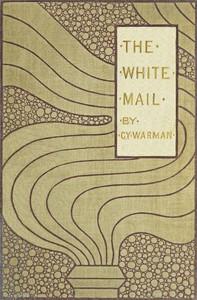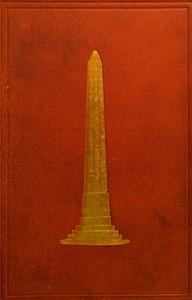|
|
Read this ebook for free! No credit card needed, absolutely nothing to pay.Words: 37866 in 16 pages
This is an ebook sharing website. You can read the uploaded ebooks for free here. No credit cards needed, nothing to pay. If you want to own a digital copy of the ebook, or want to read offline with your favorite ebook-reader, then you can choose to buy and download the ebook.

: The White Mail by Warman Cy - American fiction 19th century; Railroad stories@FreeBooksWed 08 Nov, 2023 The White Mail THE PASSING OF THE WATCHMAN DENIS MCGUIRE lived at Lick Skillet, on the ridge between the east and west forks of Silver Creek, midway between Troy and St. Jacobs, twenty-two miles east of St. Louis--Vandalia line. Denis McGuire was the section boss, Tommy McGuire was his only heir, Mrs. McGuire, in addition to being Tommy's mother, made herself generally useful about the house. Lick Skillet possessed a saw-mill and a blacksmith shop, and contained, if we count the "nigger" who drove Jim Anderson's bull team at the mill, twenty-seven souls. Denis McGuire was an honest Irishman, industrious and sober, except on Saturday nights, and possibly Sunday. He was unable to read or write, even his own name. Heidelberg, the station agent at St. Jacobs, the eastern terminus of McGuire's section, kept his books and accounts and the time of the men. In return for this kindness McGuire used to do odd spurts of manual toil for Heidelberg. Sometimes, on a Saturday afternoon, he would set his car off at the end of his run, take his men over and shovel snow and saw wood for the agent. In summer, when they had their scythes out, they invariably cut the weeds on the vacant lot between the station and Heidelberg's house, clipped the lawn, and weeded the garden. Down by West Silver Creek bridge there was a water tank and a pump, whose motive power was a mule. Close by the bank of the lazy little river stood the watchman's shanty, narrow, high, and painted red, like the tank, and like hundreds of other shanties that were strung along the line from St. Louis to Indianapolis. Rain or shine old man Connor was always there to show his white light to the engineer of the Midnight Express, and a white flag to the men on the White Mail in the morning. Beyond the bridge, a round-faced lad of sixteen summers trudged after the mule, who appeared always to be going sidewise, as a boar goes to battle. The round-faced boy was the old watchman's eldest son, a good-natured, lazy lad who could not whistle a tune, but who was forever singing, "The Hat Me Father Wore." When the old man had walked across the bridge and back, with his hands behind him, glanced at the block on the figure-board to see that the tank was full of water, filled his red light and his white light, polished the globes, and set them both burning by the door, he would light his pipe and sit and gaze down into the dirty delinquent river, that came cautiously under the bridge, crept noiselessly away and lost itself in the mournful, malarial forest. Patient as a monk, solitary as a bandit, lonely as an outcast, the faithful watchman dwelt by the bridge. To the gray-haired driver of the Midnight Express, whose black steed lifted him in a short half hour out of the great American bottoms, by the coal mines at Collinsville and up to the tablelands of Troy, who strained his eye around the curve at Hagler's Tank, he showed the friendly white light. "Let her go," it seemed to say, and the great headlight, trembling down the long grade, flashed a moment on the storm-stained face of the old watchman, and was gone again. Nor did he sleep or nod or close his eyes until the dawn of day; until he had shown the milk-white flag to the men on the White Mail in the morning. But time will tell upon us all. It told upon the bridge, upon the old man and the mule. In spring the carpenters would come and fix and brace the bridge, that had been racked and strained by ice and flood. In spring the local doctor gave the old man something for his cough, and the old man cut a quaking asp and fixed it in the stall for the mule to gnaw; for its bark was the bitters the mule needed in spring. At the far end of a raw, cold March the old man fell sick of a fever; typhoid-pneumonia the doctor called it, a cruel combination, either half of which could kill. It was midsummer before he was able to take his post at the bridge again. In the autumn he had ague that shook his bent frame and made his old bones ache. All night he would watch in the little shanty, all the morning shake with ague, and burn with fever in the afternoon. Free books android app tbrJar TBR JAR Read Free books online gutenberg More posts by @FreeBooks
: Ukraine the land and its people by Rudnytskyi Stepan - Ukraine; Ukrainians@FreeBooksTue 07 Nov, 2023

: Cleopatra's needle by Wilson Erasmus Sir - Obelisks; Cleopatra's Needle (London England)@FreeBooksTue 07 Nov, 2023
|
Terms of Use Stock Market News! © gutenberg.org.in2025 All Rights reserved.






